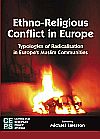Muslims in Spain and Islamic Religious Radicalism
Muslims in Spain and Islamic Religious Radicalism
Author(s): Patricia Bezunartea, José Manuel López, Laura Tedesco
Subject(s): Politics and religion, Migration Studies, Ethnic Minorities Studies
Published by: CEPS Centre for European Policy Studies
Keywords: Muslims in Spain; religious radicalisation; emigration;
Summary/Abstract: This chapter starts from the assumption that the process of integration in Spain is different from that in other EU countries and that it is marked by two main characteristics. First, immigrants from Muslim countries are fewer in number than immigrants from Latin American countries. Second, the existence of domestic terrorism, through the Basque separatist group ETA, tempers the impact of tensions and conflicts from radical Islam.
Recent polls indicate that immigration and terrorism are among the main concerns of Spaniards. According to the 2007 Opinion Barometer survey conducted by the Sociological Research Centre (CIS)2, immigration (a concern for 11.6% of the population) stands fourth behind terrorism (23.6%), unemployment (14.4%) and housing (14.1%) in terms of the problems perceived as affecting Spain most acutely. This reference to terrorism focuses more on that perpetrated by ETA than that of the Islamic terrorist cells. Of course, the 2004 Madrid attacks changed many aspects of Spaniards’ perception of Islamic terrorism, making it much more real and threatening. Nevertheless, ETA’s permanent campaign and the failed Basque peace processes are still much more at the forefront of people’s minds.
Book: Ethno-religious conflict in Europe
- Page Range: 136-158
- Page Count: 23
- Publication Year: 2009
- Language: English
- Content File-PDF

